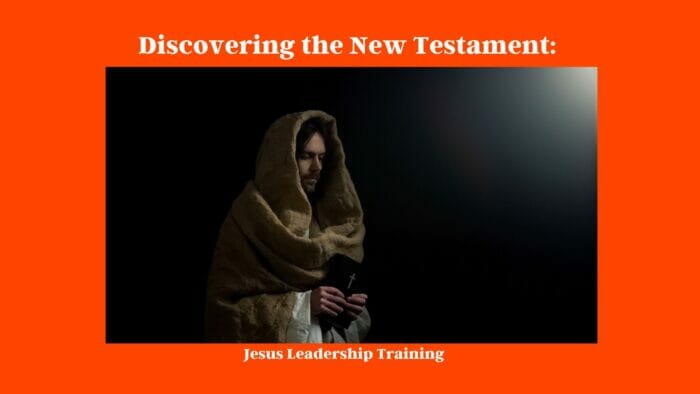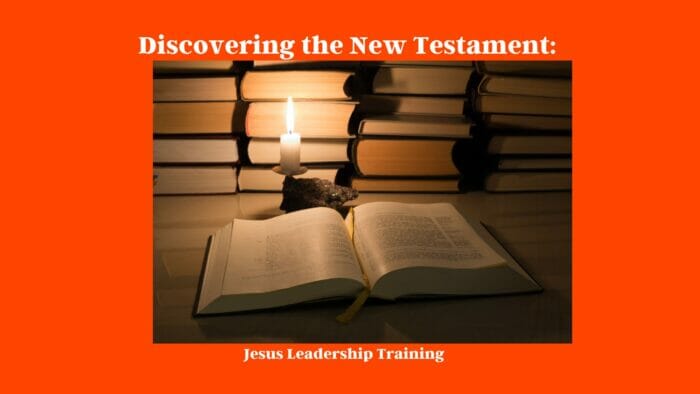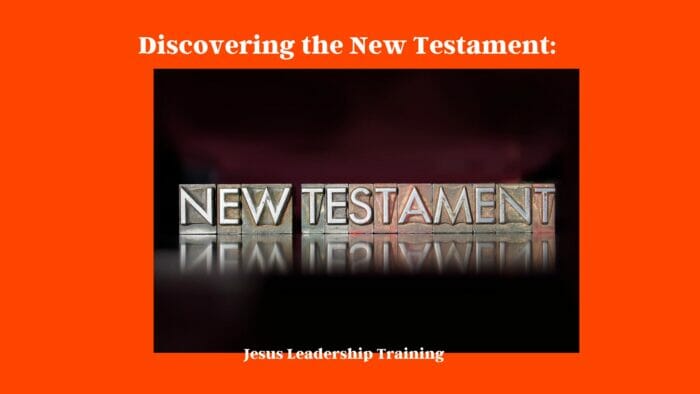Embark on a journey of discovery through the pages of the New Testament. Uncover the depth of its wisdom, stories, and teachings in this comprehensive guide titled ‘Discovering the New Testament’.
Table of Contents
Introduction
In the wide expanse of religious literature, few texts possess the transformative power and profound insights found in the New Testament. This part of the Holy Bible holds a treasure trove of teachings, parables, and life lessons that have shaped centuries of human thought and behavior. However, Discovering the New Testament goes beyond a mere casual reading. It involves delving deeper into its pages, uncovering layers of meaning, and cultivating a deeper understanding of its significance in the context of history, culture, and faith. Let’s embark on this fascinating journey together.
Discovering the New Testament: A Historical Perspective
Origins and Influences
Understanding the New Testament’s historical context can reveal its deep roots and varied influences. It was born in an era of social and political upheaval, a time when new philosophies and religions were emerging. The New Testament wasn’t created in a vacuum. It’s a blend of cultures, philosophies, and languages, making it a fascinating artifact of human history.
Development of the Canon
The New Testament we read today wasn’t always the same. It went through several changes and evolutions, including disputes over which books to include and exclude. This process, known as the development of the canon, involved rigorous debate and intellectual scrutiny from early Christian scholars and leaders.
Literary Styles and Techniques
Just like any great work of literature, the New Testament employs various literary styles and techniques. Exploring these can enhance our appreciation and understanding of the text. From evocative parables to vivid prophetic visions, from compelling narrative to introspective epistles, the New Testament is an exciting blend of literary forms.

Exploring the Gospels: Synoptic and Johannine
The Synoptic Gospels: Matthew, Mark, and Luke
The Synoptic Gospels—Matthew, Mark, and Luke—share a common narrative structure and content, offering a “synoptic” or “same view” of Jesus’ life. Despite their similarities, each Gospel contributes its unique perspective and emphasis, illuminating different aspects of Jesus’ teachings and ministry.
The Gospel of John: A Unique Account
John’s Gospel stands apart from the Synoptics, offering a more symbolic and spiritual portrait of Jesus. Exploring this Gospel can deepen our understanding of Jesus’ divine identity and mission, as depicted in this distinct narrative.
Paul’s Epistles: Letters of Faith
Paul’s letters are an integral part of the New Testament. They offer insights into the early Christian communities and outline essential theological concepts. Reading Paul’s Epistles is like eavesdropping on ancient conversations about faith, grace, and salvation.
The Book of Revelation: Understanding Apocalyptic Literature
The Book of Revelation, the final book in the New Testament, is a vibrant and sometimes puzzling piece of apocalyptic literature. It’s full of symbolism, imagery, and prophetic visions that can be intriguing to explore and interpret.

The New Testament in Modern Life
Spiritual Wisdom for Everyday Living
The New Testament is more than an ancient religious text; its teachings and principles can guide us in our daily lives. Discovering its spiritual wisdom can lead us towards personal growth and a deeper sense of purpose.
The New Testament’s Impact on Art, Culture, and Society
The New Testament has influenced countless aspects of our world, from art and literature to social norms and legal systems. Understanding this impact can provide a new lens through which to view and appreciate our culture and history.
FAQs on Discovering the New Testament
1. Why is the New Testament important to Christians?
The New Testament is the cornerstone of Christian faith, as it contains the life, teachings, death, and resurrection of Jesus Christ, who Christians believe is the Son of God and the savior of humanity.
2. How many books are there in the New Testament?
The New Testament consists of 27 books, including four Gospels, one book of history (Acts), twenty-one epistles or letters, and one book of prophecy (Revelation).
3. How is the New Testament different from the Old Testament?
The Old Testament, primarily written in Hebrew, records the history and religious laws of the Hebrew people. The New Testament, written in Greek, focuses on the life and teachings of Jesus and the early Christian community.
4. Who wrote the New Testament?
The New Testament was written by various authors, including the apostles Matthew, John, Peter, and Paul. Some books, like Hebrews, have unknown authors.
5. Is the New Testament historically accurate?
While some historical details in the New Testament align with archaeological findings and non-Christian historical records, other elements—particularly supernatural events—are considered matters of faith.
6. How should I start reading the New Testament?
There is no one-size-fits-all answer. Some might suggest starting with the Gospels, while others may recommend beginning with Paul’s Epistles. Ultimately, it depends on your individual interests and spiritual goals.
Conclusion
Discovering the New Testament is a rich and rewarding journey. It requires curiosity, openness, and a willingness to engage with the text on multiple levels. As we explore its historical context, literary techniques, theological teachings, and modern applications, we gain not only knowledge but also wisdom and insight for our personal and communal lives.




